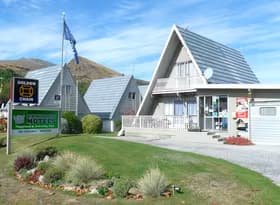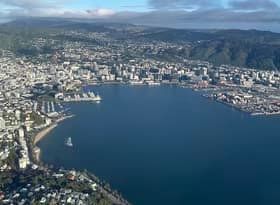Events can be a great way to stimulate a local area – bringing a cash injection from out of town visitors, raising the profile of an area and local businesses to visitors and migrants, or simply bringing a community closer together. Many communities choose to support events which align with their strategic goals, but it’s important to assess if the benefits really stack up, and if a public investment is warranted. Infometrics offers an event impact calculator to our regional clients, empowering them to calculate impacts for themselves.
The Olympic folly
The Olympic Games are probably the biggest event that a city can host, drawing in athletes, spectators and a global audience of billions. Host cities have historically spent dizzying amounts bidding for games, promising swathes of new dedicated infrastructure. However, most cities experience fewer visitors during the games, as regular tourists avoid the prospect of crowding and price gouging. This means that the economic impact is likely to be similar or even less than what they would have experienced without the event. The main benefit is bringing the city to the fore of potential tourists’ minds, leading to a longer-term sustained boost in tourism – but at what cost? PyeonChang Winter Olympics were reported to cost South Korea $10 billion, and the main stadium was promptly demolished after the games. The tide does seem to be turning though, with fewer cities lining up with large bids, prompting speculation that this model might have to fundamentally change – most importantly, allowing host cities to use existing facilities.
Commonwealth Games in New Zealand
Fortunately, New Zealand has never hosted an Olympic Games but has hosted the Commonwealth Games, in Christchurch in 1974 and Auckland in 1990. To say nothing of the cost, Christchurch made good use of its infrastructure legacy – with the swimming pool and stadium being a popular council-run facility until it was irreparably damaged in the February 2011 earthquake. Accommodation for the Games was built at the University of Canterbury campus, and has remained as student accommodation ever since. For the 1990 games, Auckland redeveloped the existing Mount Smart stadium as the main venue. However, it seems that no one has actually looked at this spending to see if it was worthwhile.
Infometrics event calculator
For communities looking to invest in events, even at a smaller scale than the Olympics, it’s clearly important to understand the potential impact involved. Infometrics has developed an events calculator for regional clients, empowering them to calculate event impacts without having to commission a consultant to write a report for each individual event. This was first launched in 2015 and has been taken up by councils and EDAs across the country when assessing events for public support or investment. Users provide estimates of the number of visitors, how much they might spent, and how long they might stay, and the calculator provides estimates of the economic impact based on different types of visitors and spending. The output can be exported as a PDF report to share with councillors or stakeholders.
Although it was envisaged that it would be used in an economic development context for events like festivals, sporting events and concerts, we’ve found that councils are also using it in assessing community events, to maximize the benefit of ratepayer funds. The events calculator is also a great tool to use after an event, to critique previous assumptions and assess whether the public investment was warranted. This ensures that any Olympic scale follies don’t get repeated, and provides a clear and comprehensive overview of the impacts an event had on the local economy
Caroline Bay Rock and Hop
The Caroline Bay Rock and Hop is a great example of how the event calculator can provide insights into how a local event contributes to the local economy. The Timaru-based event – a weekend-long nostalgia festival, celebrating vehicles of all ages and fashion of the 50’s and 60’s – is run as a fundraiser for the local hospice, and draws in visitors from across Canterbury and beyond. Aoraki Development, Timaru District Councils’ EDA, uses the Infometrics event calculator to assess the impact of the event each year. Aoraki Development feeds in figures supplied by the organizers, including a post-event survey capturing where visitors came from, how long they stayed and what they spent their money on. The calculator provides a structured approach to draw in all of the relevant event data, as well as estimating multiplier effects of event spending.
Impact of 2019 Rock and Hop
The third annual Rock and Hop took place in March this year, with a record crowd of 4,600, including 4,200 from out of the district, raising $105,000 for the local hospice. Information from the event organisers and a post-event survey indicated that those visiting the district spent $2.3 million on accommodation, food and drink, fuel and retail over the course of the weekend. Spending by locals is separated from the impact assessment as they would have likely spent it on something else in the district otherwise.
The Infometrics event calculator estimated that $1.1 million of this this spending is value added, or an addition to the district’s GDP1 . The calculator also estimates indirect and induced effects – the ripple effect through the local economy resulting from the event. Indirect effects include the impact on local suppliers: for example, butchers will need to provide more steaks to support restaurants in serving more meals to visitors. Induced effects include the impact of increased household spending: for example, bar staff will work extra hours to serve event visitors, and in turn spend their extra pay in the local economy. Indirect and induced effects added a further $674,000 to the local economy.
Updated events calculator
Infometrics recently updated the events calculator, making it easier to use and adding additional functionality. New features include:
- Improved inputs screen, making it easier for users to input different types of event data.
- Improved capture of information about the location and venue, to provide more context for the output report.
- Ability to hold events in draft state before finalising.
- Ability to delete events.
- Ability to clone and edit an event – this is handy to repeat the calculation each time an event is run, or to run a report based on different event assumptions.
- Ability to calculate the return on investment, by specifying how much a territorial authority has invested in the event.
- Option to submit to an Infometrics economist for review
Getting access
Formal event impact analysis still has its place for larger events where larger public investments are involved, however the self-service Infometrics event impact calculator is a good approach for small to medium sized events.
The event impact calculator also makes it simple to compare, on a consistent and robust basis, the likely impacts of a range of events, which is particularly useful if organizations have an Events Fund and want to make sure they’re making the wisest investments they can.
The events calculator is available to all of our Regional Economic Profile Toolkit subscribers, from their Infometrics Portal. If you unsure how to get to it, or interested in learning more, please get in touch with one of our team, or email Nick Brunsdon.
1 Not all spending remains in a local area, with businesses needing to purchase goods and services from supplies throughout the country, taking some of the economic impact away.

















